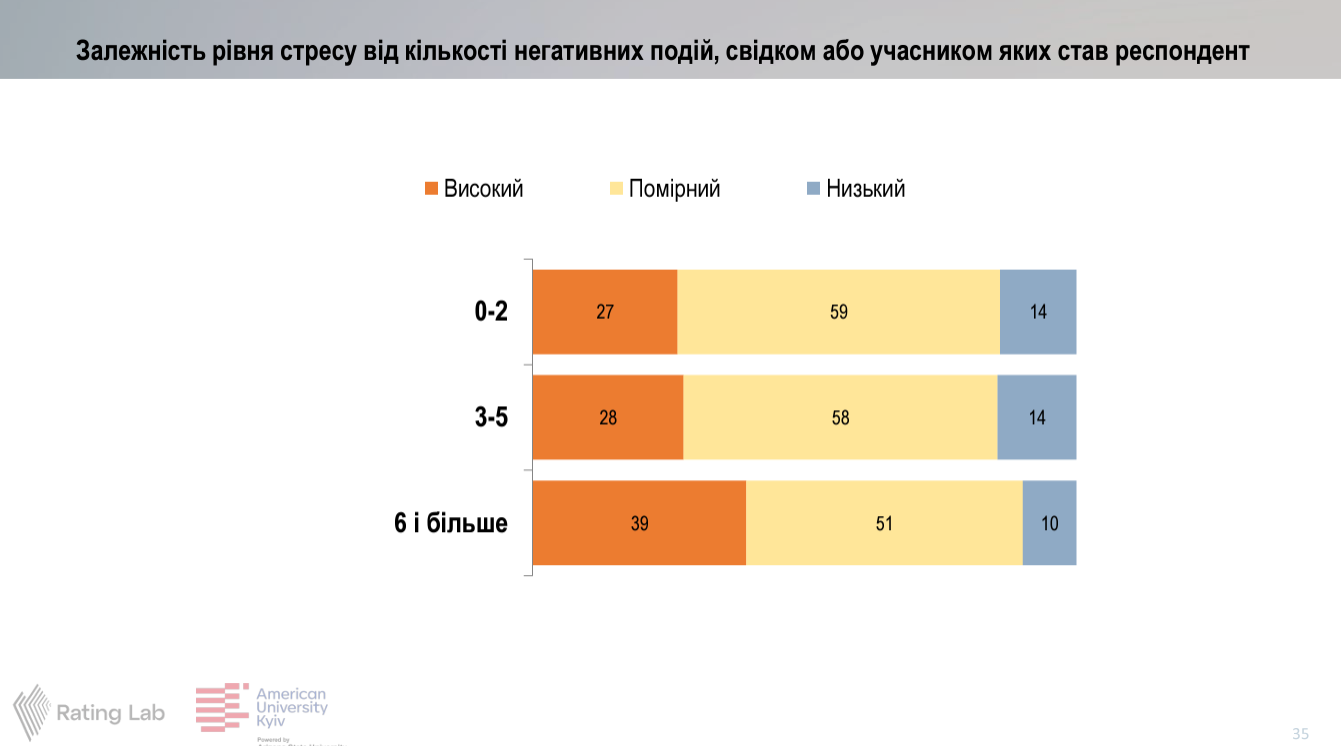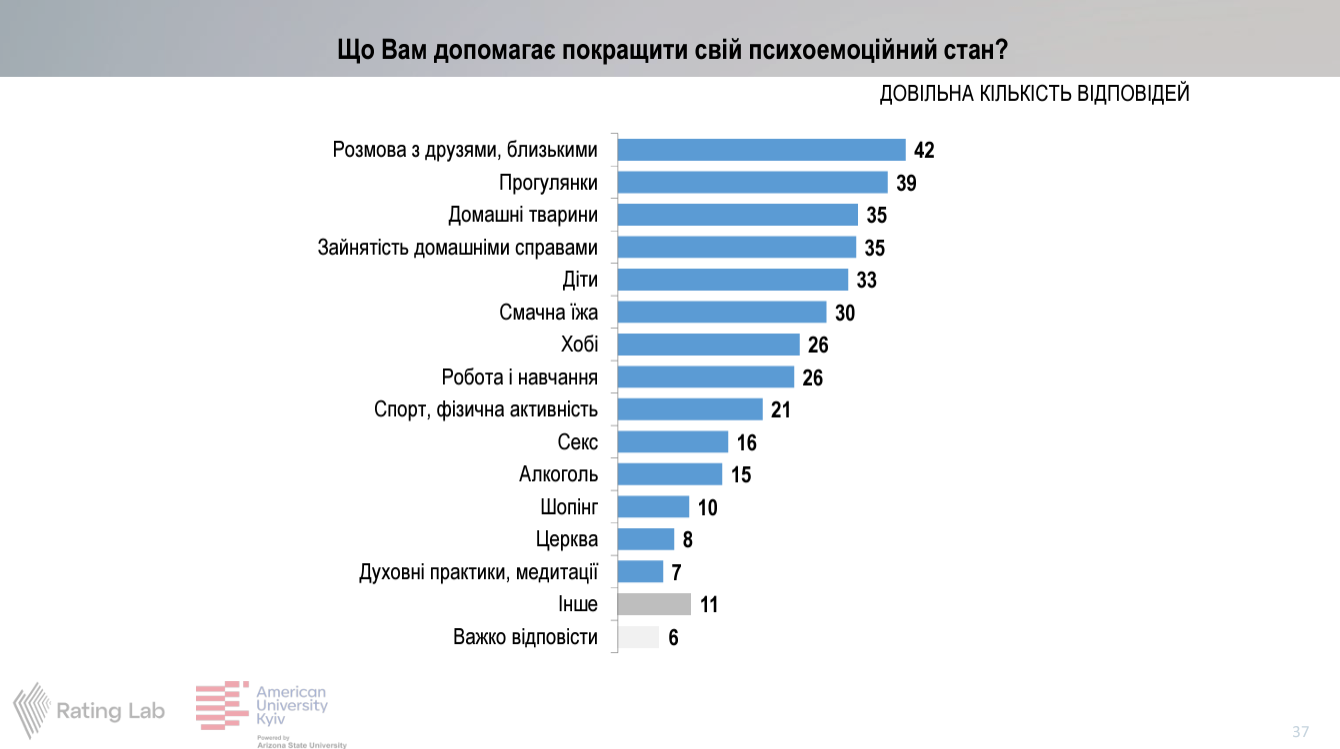One in four Ukrainians experience high levels of stress – survey

These results are from a study conducted by the Institute of Behavioral Research at the American University of Kyiv and the Rating Lab Research Laboratory, "Barriers and Stereotypes: Exploring Why People Avoid Seeking Psychological Support."
Rubryka's correspondent reports this.
28% of Ukrainians experience a high level of stress, while the majority (58%) have a moderate level, and 14% have a low level. The study also revealed that women tend to have a higher level of stress (31%) compared to men (25%). On the contrary, men are more likely to have moderate (59% vs 57%) and low stress levels (16% vs 12%).
Experts have also observed that younger individuals experience higher levels of stress compared to older individuals. According to the survey findings, 48% of individuals aged 18–29 reported higher stress levels, while only 13% of those aged 60 and above experienced the same. This suggests that stress levels tend to decrease gradually with age.

Groups by stress level. Photo from the study "Barriers and Stereotypes: Exploring Why People Avoid Seeking Psychological Support."
Experts also looked into the correlation between the amount of prior negative experiences and an individual's stress level. The findings showed that among those who have encountered or been involved in such events six or more times, 39% reported a high level of stress, 51% had a moderate level of stress, and only 10% had a low level of stress.
However, individuals who have encountered such events 0–2 or 3–5 times exhibit lower rates. The survey reveals that 27% and 28% of participants experienced a high level of stress, while 59% and 58% reported a moderate level, and only 14% had a low level.
Among the negative experiences, Ukrainians mainly encountered the following situations:
- separation from family and friends (61%),
- shelling and bombing (48%),
- death of relatives or loved ones (31%).
The lowest percentage involved experiencing occupation (12%), hunger and lack of access to water (9%), and physical or sexual violence (2%).

Dependence of the stress level on the number of negative events. Photo from the study "Barriers and Stereotypes: Exploring Why People Avoid Seeking Psychological Support."

Adverse events experienced by Ukrainians. Photo from the study "Barriers and Stereotypes: Exploring Why People Avoid Seeking Psychological Support."
Experts also discussed various strategies for managing personal stress. The most popular methods include talking to friends or family (42%), taking a walk (39%), and spending time with pets (35%). The less prevalent options include shopping (10%), attending church (8%), and engaging in spiritual practices and meditation (7%).
Nevertheless, experts focus specifically on the consumption of tasty food (36%) and alcohol (21%), which can potentially result in issues concerning both physical and mental well-being.

Ways to deal with stress. Photo from the study "Barriers and Stereotypes: Exploring Why People Avoid Seeking Psychological Support."
Based on the research findings, experts drew several conclusions about the prevalence of stress among Ukrainians. These include:
- With age, the level of stress gradually decreases;
- The most susceptible demographic is young individuals, with approximately half experiencing indications of high stress levels;
- The more adverse experiences a person has encountered, the higher their stress level is likely to be;
- Conversely, those with elevated trust in others tend to have lower stress levels.
For reference:
The survey took place in April 2024 and utilized the Rating Online platform to administer an online self-completion questionnaire (CAWI). It included 1,464 participants over 18 located in various regions and had Internet access during the survey, excluding temporarily occupied territories. The results are representative of both age and region.
It's worth mentioning that the Aspen Institute Kyiv, Impact Hub Odesa, and co-founder Yehor Hrebennikov organized the Day of Ideas in Poltava. One of the discussions centered on individuals' resilience and finding sources of spiritual and psychological endurance. Find out more in Rubryka's article "Support, Unity, Adaptation: Where to Find Spiritual Stability."

Solutions from Ukraine: 162 Resilience Centers open in Ukraine, offering free mental health support

Solutions from Ukraine: new Ukrainian online game Triumfland Saga boosts children's mental wellness




















































